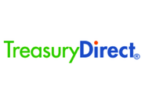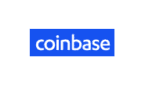There’s been a lot of discussion about the new 2022 federal rule strengthening the requirement for payment processors and businesses to issue a form 1099-K, see Stimulus Bill Requires Payment Processors & Businesses To Report Earnings of $600+ on 1099-K (e.g. Paypal, Portals, eBay, Uber, etc). The new rule lowering the threshold to $600+ goes into effect for year 2022.
There are many unknowns regarding what will be counted and what won’t. Example: Portal earnings from shopping might not be reported on a 1099-K if the portal pays you directly to your bank since it’s not a payment for goods or services. But if you accept payment via Paypal, will Paypal know that? If you Buy Swagbucks it might not be counted on a 1099-K when paid directly from Swagbucks since you cashed out the same amount you put in. But if you accept payment via Paypal, will Paypal know that?
My Paypal account met the criteria for a 1099-K for year 2021. I exported my transaction data from Paypal to try gleaning some insight as to what they counted in the reporting and what they didn’t. A few tidbits worth sharing:
- Payment Types: From the various payment forms I encountered throughout the year, most fell under the “Mass Pay Payment” label, and a few fell under the “General Payment” label or the “Website Payment” label.
- Payments from Swagbucks/MyPoints, Ibotta, Fluz, Dosh all usually came through as “Mass Pay Payment” as these companies use the Paypal Mass Payment option. Interestingly, I see on this FAQ page that new customers can no longer use the Mass Payment method as they’ve transitioned to a new method. As of now, most of those big companies payments are still coming through as “Mass Pay Payment”, it’s possible that can change in the future.
- From context it appears to me that the “General Payment” is how a manually processed goods/services payment appears. E.g. if you buy an iPhone from Craigslist and pay the person using the ‘Goods/Services’ option, I think that would show up as “General Payment”.
- “Website Payment” I believe that shows when going through the Paypal invoicing system, e.g. if you invoice a buyer from within your Paypal account and they pay the bill. I also got one Giving Assistant payment and it showed up as “Website Payment” for some reason.
- 1099-K: Most of the “Mass Pay Payments” from business like Swagbucks, MyPoints, Dosh, and Fluz did count on the 1099, but the “Mass Pay Payments” from Ibotta did not count. I received two “Website Payments” and both did get counted on the 1099. I received four “General Payment” payments and none appeared on the 1099.
- Some notes and thoughts:
- I’m fairly certain that Paypal has no idea about the nature of any given transaction whether it ‘deserves’ a 1099-K or not. If the business is one that Paypal considers 1099-able, all payments from that business will count on the 1099. E.g. since they consider some payments from Swagbucks to be 1099-able, they count all Swagbucks payments in the 1099. Same with Dosh and Fluz.
Payments from Ibotta did come through as “Mass Pay Payments”, yet they did NOT get counted in the 1099-K. I suppose Ibotta is coded in their system as being a rebate/shopping system and does not count. Even referral credit from Ibotta did not count on the 1099-K. Again, Paypal doesn’t know what any given payment is for, but apparently they do have ways of coding each business, based on the nature of the business, whether payments from that business need to be counted on a 1099-K.
Reader Brandon says that Rakuten payments also do not count on the 1099-K, presumably they are coded as rebates or shopping and not payment processing. - “General Payments” weren’t ever considered to be 1099-able. I guess they don’t assume manual payments to be worth of a 1099-k for some reason. Only payments done through the Mass Pay system count. Strange.
- Two businesses sent me payments with different methods: when they sent it as a “General Payment” it did not appear on the 1099 and when they sent it as a “Mass Pay Payment” it did. This is despite the fact that both payments were for identical reasons.
- (Small detail: The Paypal seller fee does not reduce the amount of the 1099-K. Example, if you receive $100 payment and Paypal takes a $3 fee for processing the payment, you’ll see the full $100 counted in the 1099-K. Of course the processing fees are a business expense, but they don’t reduce the amount of the 1099-K.)
- I’m fairly certain that Paypal has no idea about the nature of any given transaction whether it ‘deserves’ a 1099-K or not. If the business is one that Paypal considers 1099-able, all payments from that business will count on the 1099. E.g. since they consider some payments from Swagbucks to be 1099-able, they count all Swagbucks payments in the 1099. Same with Dosh and Fluz.
On a related note, I’ve recently learned a few bits of good news: 1) Paypal has a page of guidance about the new rule and they make clear that ‘friends and family’ payments will not be reported. 2) NBC reports that Zelle transactions will not get 1099ed since Zelle is not a payment processor, just a facilitator to connect users’ banks (link). 3) Swagbucks makes it clear in their FAQs that they’ll exclude any Paypal redemptions from the 1099 requirements since that’ll get 1099ed by Paypal; hopefully other companies will do the same and help us avoid the double 1099 headache.
As noted in our original post, some people might elect to get their small payments directly from the business versus going through Paypal to avoid the hassle. E.g. if you sold an iPhone for $500 and you also got $100 in Swagbucks cashback through the year, you might elect to get the eBay and/or the Swagbucks payment without involving Paypal, thus avoiding a $600 event with a single business. On the other hand, someone who is receiving payments from multiple businesses which are in-fact taxable, might prefer to get everything paid via Paypal, and thus hopefully getting a single 1099-K for all of their business ventures and not have to give out their SSN/EIN to multiple smaller vendors.
I imagine there are many people who have received a 1099-K from Paypal for 2021, either due to meeting the $20,000/200 threshold or due to being in a state with lower reporting requirements. Feel free to share your own data points and thoughts in the comments below.






